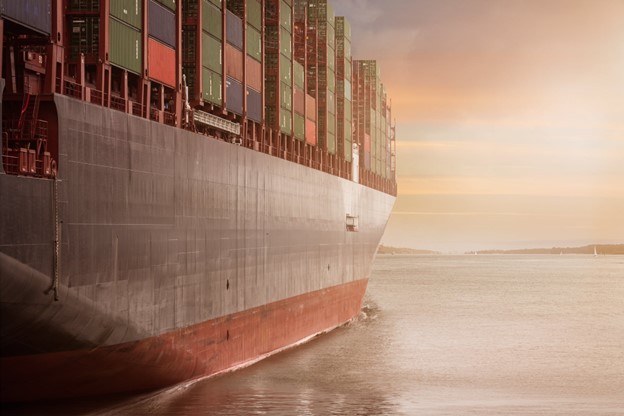The past two years have been a period of supply chain disruptions, shipping delays and material shortages for companies worldwide. COVID-19 has been the most significant factor behind these supply chain issues, but in many ways, the pandemic has served as a much-needed reminder of the importance of risk management and resiliency planning.
According to a KPMG survey, 67% of CEOs are looking to be more proactive in preventing disruption by investing more resources in disruption detection and innovation processes.

Image Source: KPMG 2021 CEO Outlook
Whilst the UK has ended nearly all COVID-19 restrictions (Scotland and Wales still have mask rules in place), the threat of the pandemic continues to loom over the country’s supply chains. But there are other developments that supply chain managers should be aware of in 2022.
1. Sustainability Will Be a Key Focus
In the days leading up to and after COP26 in Glasgow, the UK Government announced a series of initiatives and legislation to make sustainability a key goal this decade. One of the biggest measures so far is the Net Zero Strategy: Build Back Greener. This long-awaited plan will deliver 5GW of low carbon hydrogen production capacity by 2030 whilst reducing oil and gas emissions by half.
One of the key measures in the strategy is the delivery of at least £1.5 billion of funding to support net-zero innovation projects. This will accelerate the commercialisation of sustainable technologies (i.e., low carbon emissions technologies), systems and business models.
2. Shipping Costs to Stay High
Supply chain managers hoping for a reprieve from high shipping costs will likely be disappointed this year. Shipping prices have surged since the pandemic as soaring demand for food, electronics, and fast-moving consumer goods (FCMG) clashed with factory and port shutdowns. Whilst the situation has improved these past few months, soaring shipping prices are expected to continue this year.
Business Insider reports that as of 18 March, the Freightos Baltic Index — an index of global shipping prices — sat at $9,488. This means that it costs nearly $10,000 to transport a 40-foot freight container on average. That’s an increase of almost 700% from the price of $1,400 in March 2020.
3. Staff Shortages Will Continue
Whether it’s due to the trend of the Great Resignation or a worsening skills gap, it’s clear that staff shortages have been a big pain point in many supply chains around the world. In the UK, the Office for National Statistics recorded 1,247,000 vacancies between October and December 2021 — an increase of over 460,000 from pre-COVID levels (January to March 2020). The manufacturing sector had the second-highest number of vacancies (next only to the hospitality and foodservice industry), followed by construction and transport.
4. Employee Demand for Diversity and Inclusion (D&I)
As the World Economic Forum explains, “diversity brings in new ideas and acts as a pathway to unlock creativity.”
This is particularly true in the business world, where organisations open to people from different backgrounds and perspectives tend to be more successful. Research by McKinsey shows that companies in the top quartile for gender diversity on their executive teams were 25% more likely to have above-average profitability.
It’s no surprise then that 44% of HR and business leaders across Europe, Asia and the Middle East identified D&I in the workplace as a top HR priority in 2022.
Author: Alex Minett
Alex Minett is the Head of Product & Markets at CHAS, the UK’s leading health and safety assessment scheme and provider of risk mitigation, compliance, and supply chain management services. With a working history in the audit and management consulting industry, Alex is experienced in implementing visions and strategies. Skilled in negotiation, management, and business development, he is passionate about driving CHAS in its mission to safeguard organisations from risk in the UK.
Author Image: https://drive.google.com/drive/u/0/folders/1ukvQE8bFM8r5N1T_Rd_7Bco3RI_ZkYtc
LinkedIn: https://www.linkedin.com/in/alex-minett-hd2018/

















